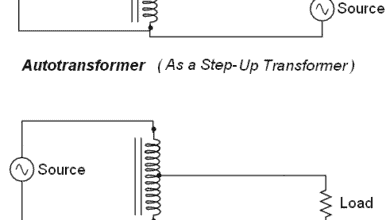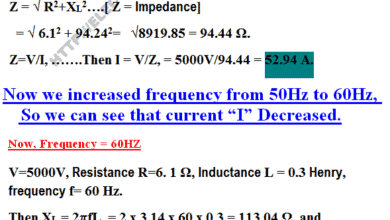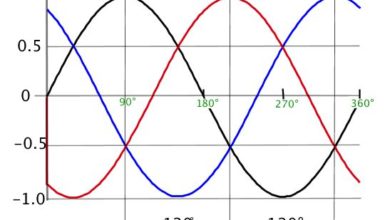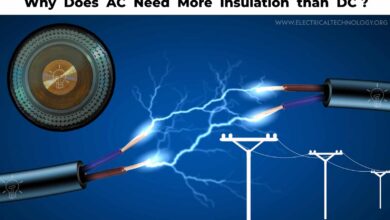Alternating Current
-
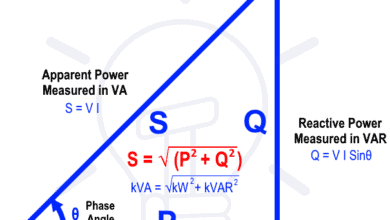
Active, Reactive, Apparent and Complex Power
What is Active, Reactive, Apparent and Complex Power? What is Active Power: (P) Active Power is the actual power which is really transferred to the load such as transformer, induction…
Read More » -
Capacitors MCQs with Explanatory Answers
Capacitors MCQs with Explanatory Answers 1. The Mark on Ceramic or Non-Polarized Capacitors is “104”. What is the value of Capacitor? 104 µF 10000 µF 10000 nF 100000 pF 2. …
Read More » -
Transformers MCQs With Explanatory Answers
Transformers (MCQs With Explanatory Answers) 1. A Transformer is designed to be operated on both 50 & 60 Hz frequency.For the Same rating, which one will give more out put;…
Read More » -
Single Phase AC Circuits MCQs ( With Explanatory Answers)
Single Phase AC Circuits MCQs ( With Explanatory Answers) 1. In case of Inductive circuit, Frequency is ___________Proportional to the inductance (L) or inductive reactance (XL). Directly Inversely No Effect…
Read More » -
Three Phase AC Circuits MCQs With Explanatory Answers
Three Phase AC Circuits (MCQs With Explanatory Answers) Three Phase AC Circuits MCQs with explanation. For explanatory answer, click on the toggle button labeled as “Check explanatory answer”. Q1. Electric…
Read More » -
Generator From Motor. Very Simple.
Generator From Motor. Very Basic Model. Here we used two 12 Volts toy/ Old Tap-recorder Motors(From trash). One as a Motor ( Turbine) and other one as a Generator/alternator. A…
Read More » -
A Very Simple Generator / Alternator (Dynamic Model from Trash)
A Very Simple Generator / Alternator (Dynamic Model from Trash) This is very simple Dynamic Model of Electrical Generator / Alternator to understand the working principle of Generator. We connected…
Read More » -
Basic Spool Generator / Alternator Model Electrical Project
Basic Spool Generator / Alternator Model Requirements: Insulated copper wire around 26 SWG 400 turns (you may also use 35 SWG) Neodymium strong magnets Plumbing tape spool 2 Safety pins…
Read More » -
Why Does AC Need More Insulation than DC at the Same Voltage Level?
Why Does AC Voltage Require More Insulation than DC Voltage for the Same Working Voltage Level? For the same working voltage, the potential stress on the insulation is lower in…
Read More »

